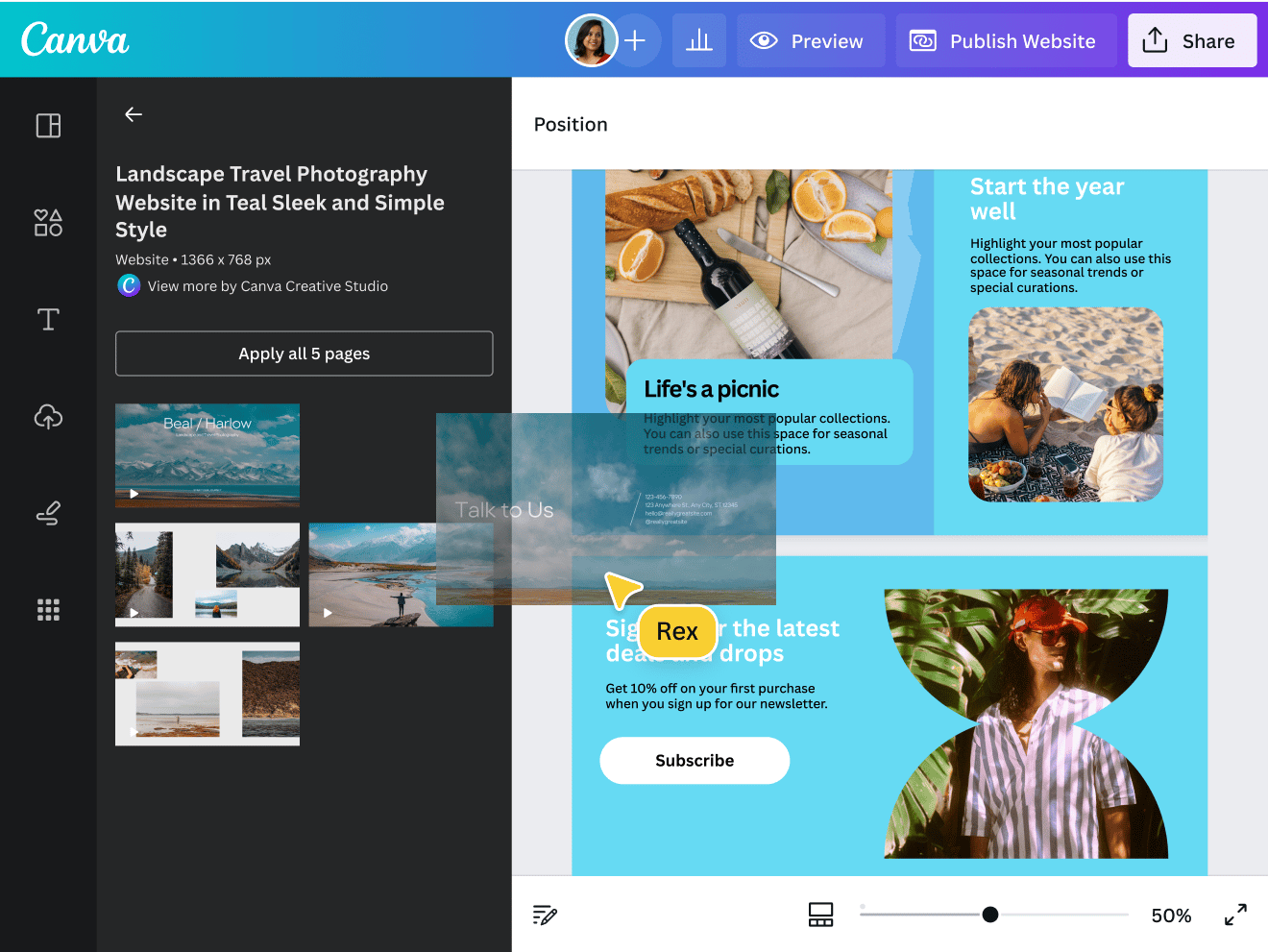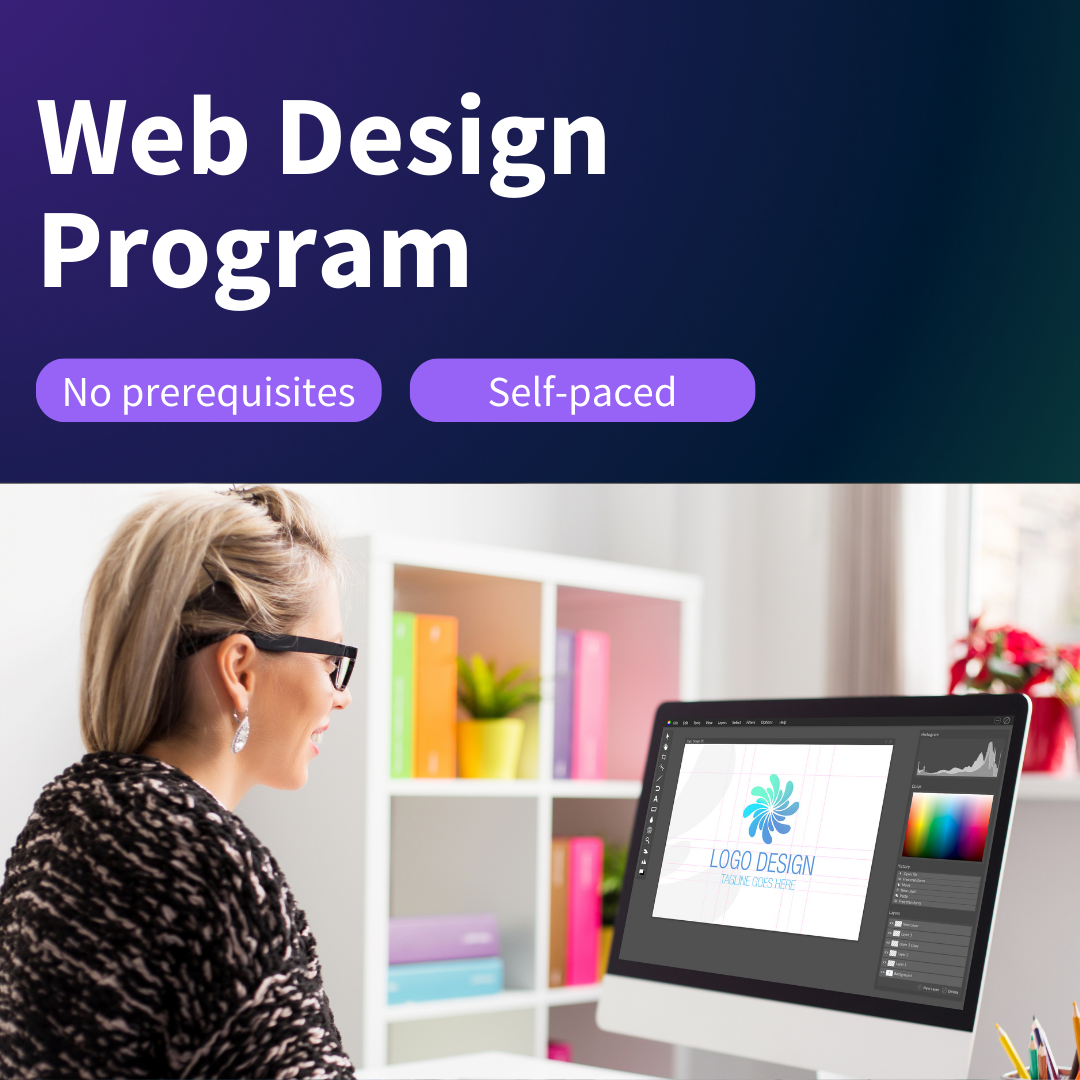Just how to Raise Your Online Existence Via Cutting-edge Website Design Strategies
In today's electronic landscape, a solid on-line presence is essential for services and individuals alike. Ingenious web Design strategies play a crucial function in achieving this objective. By concentrating on elements such as responsive Design, vibrant typography, and engaging visuals, one can develop a site that reverberates with users. Nevertheless, the trip to effective website design includes more than just visual appeal. Discovering the crucial parts can disclose how to absolutely transform an online identification.
Recognizing the Value of First Impressions
Just how critical are initial impacts in the domain name of internet Design? They serve as vital entrances to individual interaction, influencing whether site visitors remain or leave. A well-crafted web site can evoke count on and professionalism and trust, while an improperly created one may raise questions and prompt users to look for options. Crucial element such as color design, typography, and design play significant functions fit these impressions. A clean, modern-day Design can enhance user experience and motivate exploration. Conversely, outdated or chaotic visuals can bewilder and deter possible clients. Ultimately, a web site's first impact can dictate user actions, making it important for developers to focus on aesthetics and functionality to produce long-term connections with their audience.
Accepting Receptive Design for All Tools

Mobile-First Design Approach
As the electronic landscape remains to progress, the mobile-first Design method has actually become a pivotal technique for creating web sites that accommodate an increasingly mobile-oriented target market. This method prioritizes developing for smaller sized screens initially, making certain that crucial content and performances come from the start. By focusing on mobile customers, developers are compelled to enhance content and boost use, causing a much more effective searching experience. As mobile phones end up being the main means of accessing the web, applying a mobile-first approach not only improves individual engagement but likewise enhances internet search engine positions. Subsequently, organizations that adopt this Design viewpoint placement themselves competitively out there, guaranteeing their on the internet presence reverberates with individuals throughout all devices.
Fluid Grid Solutions
Fluid grid systems represent a fundamental shift in website design, allowing smooth flexibility throughout varied devices and screen dimensions. Unlike standard set designs, fluid grids utilize family member systems like percents as opposed to pixels, allowing aspects to resize proportionally (Seo Company Klerksdorp). This adaptability assures that web content maintains its honesty and functionality, no matter the individual's device, whether it be a smartphone, tablet computer, or desktop . By embracing liquid grid systems, designers can develop aesthetically enticing and practical user interfaces that enhance user experience. Furthermore, these systems streamline maintenance and updates, as adjustments instantly mirror across all screen dimensions. Eventually, fluid grids are essential for contemporary internet growth, advertising a responsive Design ideology that accommodates a progressively mobile-centric audience
Using Vibrant Typography and Color Pattern
Bold typography and critical color pattern play an important role in website design, affecting individual engagement and emotional action. The choices made in typography can improve brand name identity, while shade psychology can stimulate certain feelings and responses. Striking an equilibrium between readability and visual allure is vital for reliable communication in any Design job.
Effect of Typography Choices
Typography serves as a powerful tool in website design, influencing both aesthetic appeals and customer experience. The choice of typefaces can evoke particular feelings and set the tone for a site. Strong typography, for circumstances, creates a feeling of significance and necessity, accentuating vital messages or calls to activity. It assists develop hierarchy, allowing customers to navigate material extra intuitively. Moreover, combining different typefaces can enhance visual rate of interest while preserving readability. Color systems also play an important function in typography, as different shades can make text stick out and enhance readability. By thoughtfully selecting typography and shades, internet developers can significantly improve involvement, guaranteeing that material resonates with the target market and strengthens brand name identification.
Shade Psychology in Design
Color plays a critical function in forming user assumptions and emotional feedbacks in web Design. By purposefully utilizing shade schemes, developers can affect and stimulate particular sensations user behavior. Warm colors like red Source and orange can create a feeling of necessity, while cooler tones such as blue and environment-friendly typically advertise calmness and count on. Strong typography can improve this result, accentuating crucial messages and assisting individual communication. When incorporated successfully, vibrant shades and striking fonts can develop a unforgettable and engaging experience. Designers need to consider their target market and the psychological ramifications of their color choices to assure positioning with the wanted branding and individual experience (Internet Advertising In South Africa). Ultimately, the thoughtful application of shade psychology can greatly elevate an internet site's effect
Balancing Readability and Style
When developing a visually enticing site, designers have to prioritize the delicate equilibrium in between readability and stylistic choices. Vibrant typography can improve a website's personality, yet if overused, it runs the risk of overwhelming the web content. Developers need to select typefaces that not only share the desired state of mind but also remain understandable throughout various gadgets.
Color schemes play a necessary role in this equilibrium as well. Reliable usage of comparison can highlight crucial elements without sacrificing clearness. Refined variants in color can guide users' interest while preserving a cohesive visual. Ultimately, a properly designed website should guarantee that style matches functionality, fostering an interesting user experience. By attentively blending bold typography and tactical color options, designers can accomplish a harmonious balance that astounds site visitors while ensuring the material remains available.
Incorporating Interactive Elements for Interaction
Including interactive components right into website design considerably enhances customer engagement and retention. Functions such as quizzes, polls, and interactive infographics enable customers to proactively take part as opposed to passively consume web content. This active participation creates a sense of connection and investment in the site, which can result in longer check out periods. Furthermore, integrating aspects like hover results and animations can give prompt comments, making the customer experience a lot more satisfying and vibrant. Social sharing switches and comment areas enable individuals to get in touch with others, promoting an area around the material. Generally, these interactive aspects not just make the site much more visually enticing but additionally encourage individuals to return, considerably increasing total engagement metrics and improving the web site's effectiveness as a communication device.
Enhancing Customer Experience With Instinctive Navigating
Exactly how can instinctive navigation change a customer's experience on a web site? It acts as the backbone of customer interaction, guiding visitors perfectly with content. By using clear food selections, logical paths, and regular format, customers can swiftly locate the info they look for. This effectiveness minimizes aggravation, reduces bounce prices, and encourages prolonged interaction. Additionally, instinctive navigation enhances availability, providing to varied user demands, consisting of those with impairments. When users can navigate effortlessly, they are most likely to return, promoting commitment and trust fund. Ultimately, a well-structured navigation system not only improves individual satisfaction yet additionally elevates the general efficiency of the website, making it an essential component of ingenious website design techniques.
Leveraging Visual Narration With Images
What role does images play in crafting an engaging narrative on an internet site? Imagery acts as a powerful device for visual narration, recording the essence of a brand and conveying feelings that words commonly can not. By purposefully selecting photos that straighten with the content, visit this website web sites can develop a cohesive narrative that reverberates with visitors. Aesthetic aspects can evoke feelings of interest, enjoyment, or trust fund, improving user involvement and motivating deeper expedition of the site. Furthermore, top quality visuals complement the overall Design, making the experience more dynamic and attractive. In a digital landscape where focus periods are restricted, effective images can differentiate an internet site from rivals, eventually contributing to a more unforgettable user experience and a stronger online existence.
Enhancing for Rate and Efficiency
While engaging visuals are important for storytelling, enhancing a web site for rate and efficiency is just as crucial for assuring a favorable individual experience. A slow-loading site can deter visitors, causing greater bounce rates and decreased conversions. To achieve peak performance, internet designers need to prioritize photo compression, decrease HTTP requests, and take advantage of internet browser caching. Additionally, using Content Shipment Networks (CDNs) can disperse content efficiently across different areas, decreasing lots times. Executing asynchronous loading for scripts and prioritizing above-the-fold web content also boosts performance. On a regular basis keeping an eye on website speed with tools like Google PageSpeed Insights aids determine bottlenecks. By concentrating on these methods, services can ensure their sites are not only aesthetically attractive but likewise rapid and receptive, ultimately promoting user fulfillment and interaction.
Regularly Asked Questions
Exactly How Can I Measure the Performance of My Internet Design?
To gauge internet Design efficiency, one can examine learn the facts here now user engagement metrics, track conversion rates, conduct A/B screening, gather individual comments, and analyze the site's efficiency across different gadgets to assure optimal individual experience.

What Are the most effective Devices for Testing Site Design?
To analyze website Design performance, numerous devices are readily available. Popular choices include Google Analytics for website traffic analysis, Hotjar for individual actions insights, and A/B testing systems like Optimizely to evaluate Design variants and individual actions.
How Usually Should I Update My Site's Design?

The regularity of web site Design updates differs, but generally, a refresh every one to three years is advised. Routine analyses assure the site continues to be pertinent, easy to use, and aligned with advancing market standards and technical developments.
What Prevail Internet Design Mistakes to Stay Clear Of?
Common website design mistakes to prevent include chaotic layouts, inadequate navigation, non-responsive layouts, sluggish filling times, and overlooking mobile customers. Website Design Klerksdorp. Dealing with these issues can considerably boost individual experience and improve overall site efficiency
Just How Can I Ensure My Web Site Is Accessible to Everybody?
Making certain internet site accessibility includes executing different text for photos, using clear navigating, sticking to shade comparison guidelines, and giving keyboard navigation choices. Normal testing with varied customers can further improve ease of access and enhance user experience.
